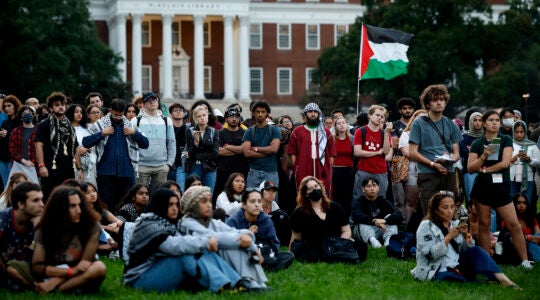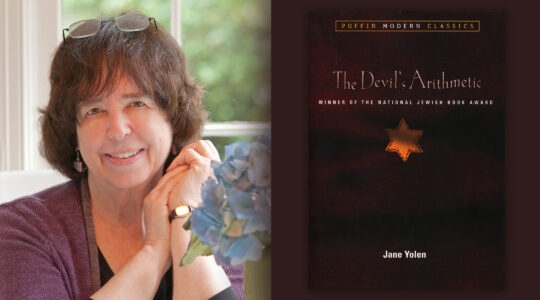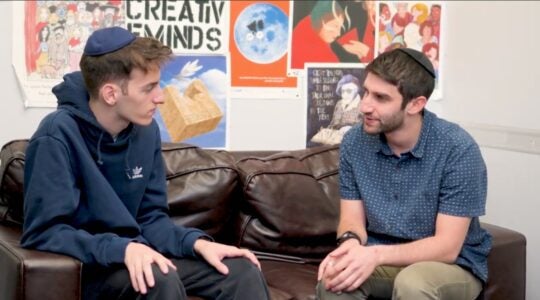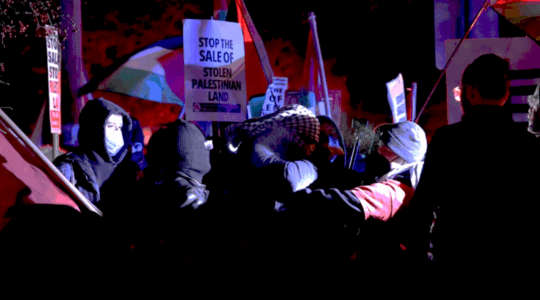Chicago has many hallmarks of a thriving Jewish community: dozens of synagogues of every denomination, a range of kosher restaurants and bakeries and one of the largest Jewish federations in the country. But locals have long lamented one big gap: a Jewish high school within the city limits.
Now, a parent-led initiative to open one in Chicago is gaining steam, with a building under contract, the city’s Jewish federation engaged, and buzz growing among families.
The goal is to launch in 2027, giving graduates of the city’s three non-Orthodox Jewish day schools a local choice beyond public and secular private schools.
The effort comes as both public and private high schools in the city have drawn allegations of antisemitism.
Last year, the Department of Education announced it would investigate Chicago Public Schools for antisemitic discrimination over allegations that schools had supported a student-led pro-Palestinian walkout. That fall, the new president of Chicago’s public school board — handpicked by the city’s mayor, who has himself shown solidarity with the Palestinian cause — resigned amid revelations about his history of antisemitic social media posts.
The elite Latin School of Chicago, meanwhile, faces a lawsuit over searing allegations of antisemitism, including one incident in which the school’s band members allegedly played the Nazi anthem.
“The climate has gotten very scary for Jews and for our kids, and so it definitely plays into my desire to look more carefully and more seriously at the new Jewish high school,” said a parent at one of the local schools, Bernard Zell Anshe Emet Day School.
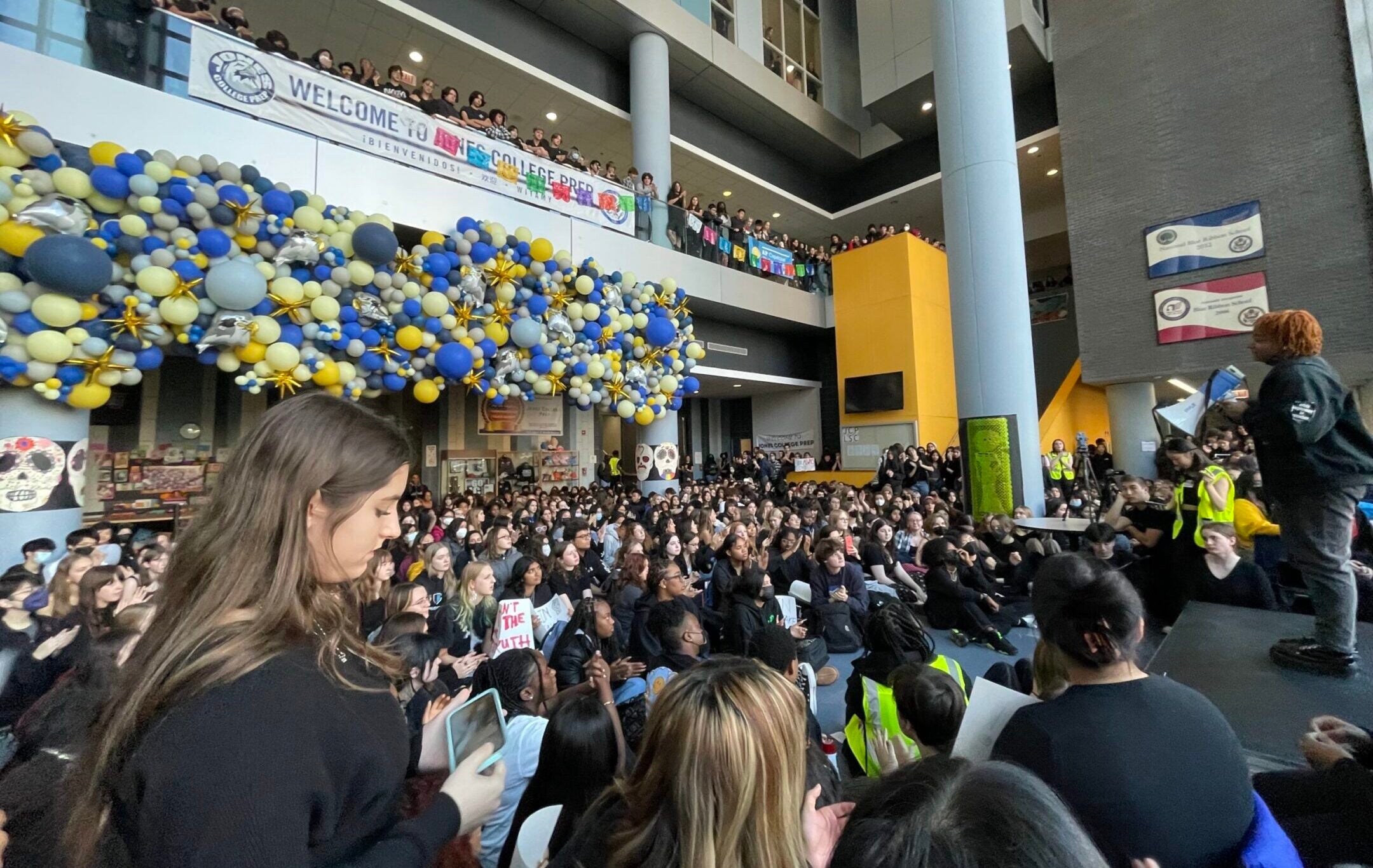
Students at Jones College Prep hold a sit-in to protest their school’s reaction to a student’s Nazi-esque Halloween costume, Nov. 7, 2022. (Courtesy of Isaac Simon)
But a bigger draw, the parent said, was simply the opportunity to continue a Jewish education without having to schlep to the far north suburbs. Rochelle Zell Jewish High School, the only egalitarian high school option in the metropolitan area, can take well over an hour during rush hour to reach from Anshe Emet’s Lakeview neighborhood, a Jewish epicenter in the city. The only other option, Ida Crown Jewish Academy, is closer, but it is still in the suburbs and is Orthodox in orientation.
“We’re one of the remaining cities that does not have a Jewish high school,” said Lonnie Nasatir, head of the Jewish United Fund, Chicago’s Jewish federation. “Other cities, even a smaller size, are able to do it. We see no reason why we can’t support such a thing.”
Nasatir said JUF has not provided funding for the new school but has supported its founding team as they work toward a launch.
The founders declined to comment on the project to the Jewish Telegraphic Agency. A job description for a head of school that recently circulated, which JTA obtained, lists six founders: J.R. Berger, the president of the Magellan Development Group, and his wife Katie Berger; Ron Huberman, the Israeli-born former CEO and superintendent of Chicago Public Schools; Carol Rubin, the former associate director of Lab Schools; Ira Weiss, a University of Chicago professor and partner at Hyde Park Venture Partners; and Rebekah Shalit, who is identified as a community volunteer.
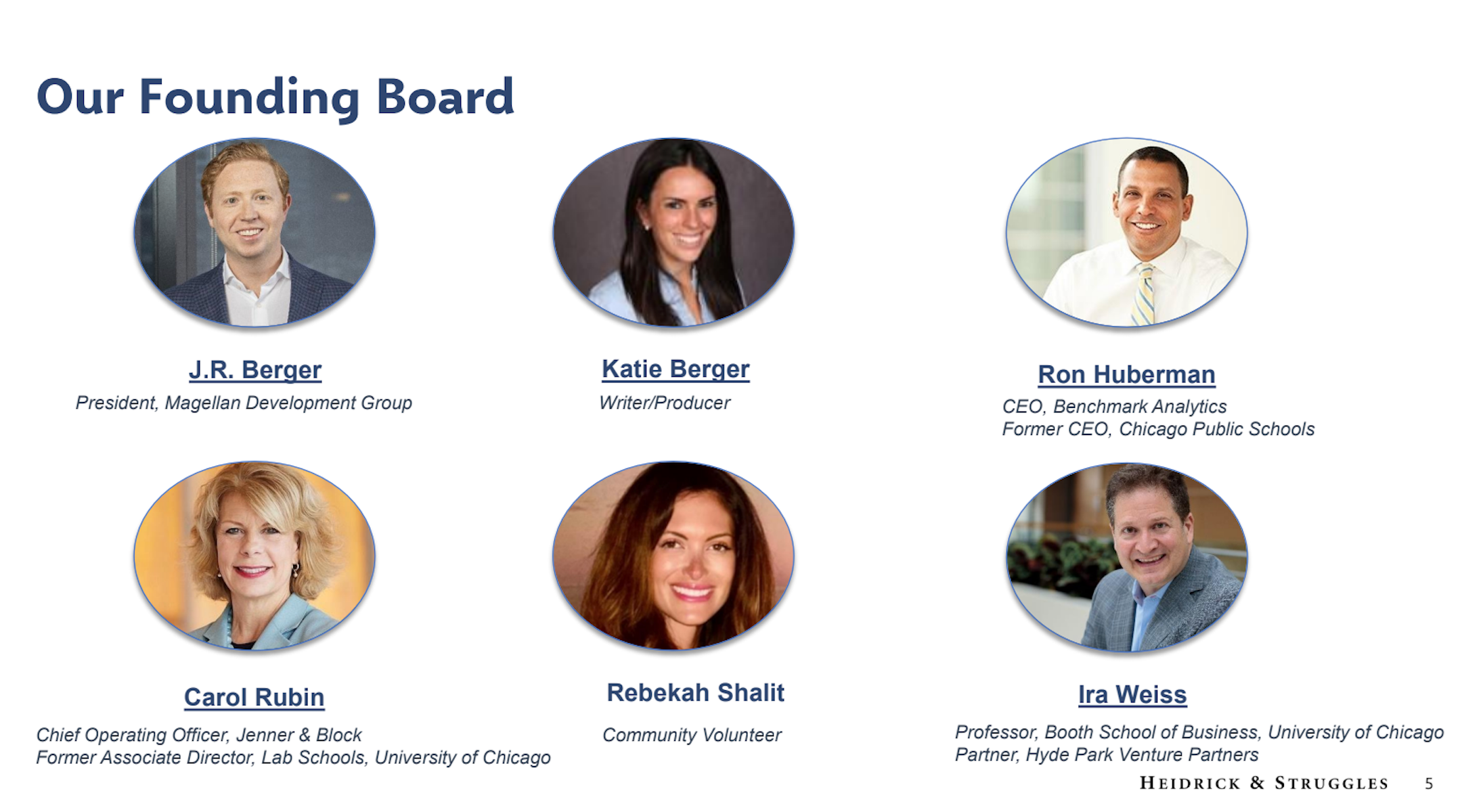
The founding board of the new Jewish high school planned in Chicago. (Screenshot)
The job description paints the picture of a “pressing need for an academically excellent high school built on Jewish values.” It says the school would prepare its students — which it said would include both Jews and non-Jews, an unusual arrangement — for the “sacred task as guardians of the highest ideals of Jewish and American civilization.”
If it opens, the new Jewish high school in Chicago would add to a growing number of Jewish schools launched amid changing tides in Jewish communities. The communities are experiencing what Jewish leaders are calling a “surge” of interest in Jewish engagement following Hamas’ Oct. 7, 2023, attack on Israel and an ensuing wave of antisemitism and anti-Israel activity. They also have been fueled in part by a backlash over diversity, equity, and inclusion initiatives in other schools, which critics say tend to give short shrift to or even malign Jewish identity.
Last fall, Emet Classical Academy opened its doors in New York City, welcoming Jewish students to school that teaches Greek and Latin alongside Hebrew and eschews progressive educational values.
Plans to launch a new Jewish high school in Ontario, Canada, next year were also devised as a response to concerns over rising antisemitism and declining educational quality in the local public schools, the Canadian Jewish News recently reported.
The first that many families in Chicago heard of the prospective new school came last September, when the founding team distributed an interest survey to Jewish day schools, four local synagogues and a few Jewish preschools in the area.
The survey garnered responses from 715 families and found that 81% of city respondents were either “very or somewhat interested in the high school for their children,” according to the job description document.
The founders had already approached JUF while researching the market, Nasatir said.
“We were pretty confident that our city needed it, and that gave them, the people that were really moving this whole project, a lot of the confidence that they had JUF’s support of the project,” he said. “I think it gave them the fuel to begin the process of really exploring and building and all the rest.”
Nasatir said JUF had not directly allocated any funding for the new high school project but had engaged with its network, including donors, who may be interested in supporting it.
“We’ve been involved in terms of making sure that the appropriate parts of our community know about this concept, whether it be donors, our contacts in security, all the different levers within JUF,” said Nasatir.
Now, buzz is building at the city’s three Jewish day schools and among their families.
Just “one or two” students at Bernard Zell each year matriculate into the suburban Jewish high schools, largely due to the fact that they are “really far and inconvenient,” said Karen Leavitt, the interim head of school. She said she believed families would gravitate toward a new option.
“As somebody who’s a part of what I consider a very foundational experience for families, a Jewish day school experience, thinking about an opportunity for them to have continuity after eighth grade and into their formative high school years is super exciting,” she said.
At Chicago Jewish Day School, a nondenominational school in the Logan Square neighborhood, about a third of students go on to Jewish high schools, according to Judy Finkelstein-Taff, the head of school. She said news of the project had been received positively at her school, where one of the founders, Ira Weiss, is on the board.
“In our current environment in America, more Jewish can only be good for the Jewish community,” Finkelstein-Taff said. “Everything that I’ve heard is very positive, and that having more Jewish education, it just opens up more opportunities for more kids.”
Chicago’s third non-Orthodox day school, Akiba Schechter, is located on the South Side, in the Hyde Park neighborhood that also houses the University of Chicago. A typical rush hour commute to Rochelle Zell could take two hours.
“People at our synagogue were actually talking about it, and it was really exciting because I think it was more about the community aspect that people were talking about,” said a Hyde Park parent whose child attends the University of Chicago Laboratory Schools, a secular private school in the neighborhood, and may consider other options for high school. “High schools are a really hard decision, and so this just adds to the mix to be able to have more options.”

A mock up of a classroom at the new Jewish high school in Chicago. (Screenshot)
The new school project is generating less buzz in the northern suburbs. At Solomon Schechter Day School, affiliated with the Conservative movement, around 40% of students go on to Jewish high school — most to Rochelle Zell, and a few to Ida Crown, according to Lena Kushnir, the head of school.
“I don’t believe that Schechter parents are the primary target for the new school, as it is geographically pretty far from our community,” Kushnir said in an email. “At this time, I have not personally heard any parents discussing the school.”
And Tony Frank, Rochelle Zell’s head of school, said in an email that he had “not had direct communication with the new school’s founders and do not have any first-hand knowledge about their project.”
But he said he would welcome the new school.
“What I can say more generally is that I believe a strong Jewish education in all its forms strengthens our Jewish community, and we welcome all efforts to educate its future generations,” Frank wrote.
The Bernard Zell parent, who asked for anonymity to avoid affecting her child’s high school applications, said she hoped the new school’s founders would soon begin to share more information about their vision and what the school would be like for the students who enroll.
“I think there’s a lot of work to be done to understand who’s going to be head of school, who’s going to be leadership, what’s the curriculum, what’s the plan for me,” she said.
But while the parent said she had heard others expressing hesitancy at letting their children be “guinea pigs” for the new project, she said she had another take about the students who ultimately turn down tried-and-true high schools for a new Jewish one.
“They’re not guinea pigs,” she said. “They are the trailblazers.”
JTA has documented Jewish history in real-time for over a century. Keep our journalism strong by joining us in supporting independent, award-winning reporting.



